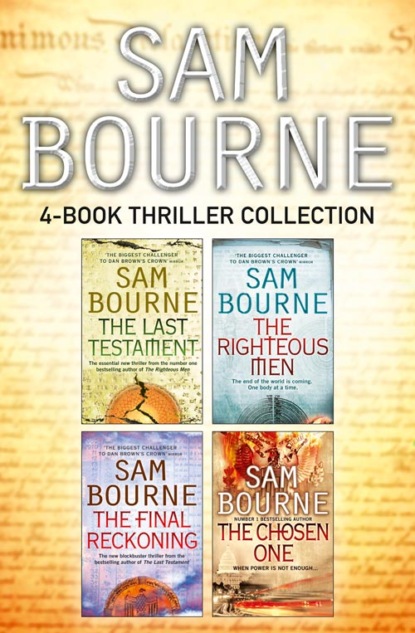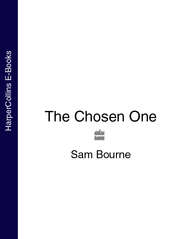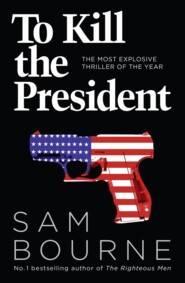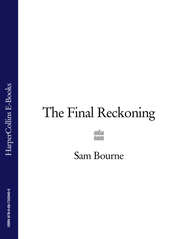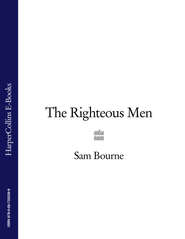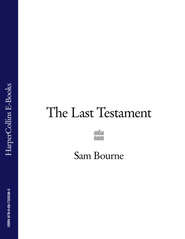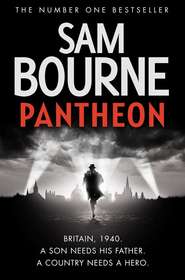По всем вопросам обращайтесь на: info@litportal.ru
(©) 2003-2024.
✖
Sam Bourne 4-Book Thriller Collection
Автор
Год написания книги
2018
Настройки чтения
Размер шрифта
Высота строк
Поля
Opportunity seldom knocks twice
A friend in need is a friend indeed
To the victor the spoils
Goodness is better than beauty
A man is known by the company he keeps
From little acorns mighty oaks grow
A chain is no stronger than its weakest link
Safety in numbers. No more.
TC was glaring at them, her sketchbook on her lap, surveying the pattern she had arranged. The messages were in three groups. Encouragement, warnings, enigmas.
TC now laid the pad onto the table, alongside the scraps of paper. It was almost dark with ink: she had filled the page. All over it were words or half-phrases crossed out, written backwards or in diagonals. She had written out the messages in every possible order, each time underlining the first letter of each line: attempting the acrostic. Will could see the results: HHOATGAFAS followed by a list of random variations using the same letters. All of them spelled gibberish.
As if reading his mind, TC turned the page of her sketchbook to show the one underneath, its surface no less covered with calculations and abortive anagrams. She peeled that away to show the one below and the one below that. She had been breaking her head to solve this puzzle for hours.
Will felt a surge of gratitude: he knew how lonely he would have been without her. But there was no getting away from it. Despite all her efforts, despite their combined intellect, they still had not cracked this riddle in ten parts. It had defeated them.
‘I can’t believe I am that dumb.’
‘What?’ Will looked up from the table to see TC leaning back in her chair, hands on her head and eyes fixed on the ceiling.
‘I cannot believe I am so stupid.’ She was smiling, shaking her head in disbelief.
‘Please tell me precisely what you’re talking about,’ Will said, in a voice that even he recognized as excessively polite and English, a voice he often used when trying to stay calm.
‘It was so obvious and I made it so complicated. How many hours have I spent on this thing now?’
‘You mean, you’ve worked it out?’
‘I’ve worked it out. What has he sent us? “A friend in need.” “From little acorns.” He’s sent us proverbs. Ten proverbs.’
‘Right, so . . . Sorry, you’re going to have to tell me. I can see he’s sent us ten proverbs. The trouble is, we don’t know what they mean.’
‘They don’t mean anything. They’re not meant to mean anything. He’s sent us ten proverbs. Because that’s where we’re meant to look. Proverbs, 10.’
TWENTY-SEVEN (#ulink_0700f44f-f9df-5a17-acf5-ce449cf02bc6)
Saturday, 8.27pm, Manhattan
He had been there as long as they had and had been muttering just as loudly. He was on his own, middle-aged and no doubt homeless, with a face that seemed swollen through exposure to the elements. In the course of the afternoon Will had seen him eat half an apple pie, handed to him by a guy wearing an iPod (who did not take the earphones out), and perhaps a bag and a half of fries; and at intervals he had read aloud from the black, plastic-bound bible he held in his right hand.
Will had found these random sermons an irritation during the afternoon, as had the succession of customers who took pains not to sit too near. Now, though, he could not have been more grateful. With a hot cup of coffee in his hand, he approached gingerly.
‘Sir, I wonder if perhaps you’d like a cup of coffee. It’s freshly made.’
The man looked up, his eyes watery. The whites were yellow.
‘If it had not been the Lord who was on our side – let Israel now say – if it had not been the Lord who was on our side, when our enemies attacked us, then they would have swallowed us up alive, when their anger was kindled against us—’
‘Yes, sir, I’m sure that’s quite right,’ Will tried, in the short moment the man drew breath. But it was no good; he was off again.
‘Then the flood would have swept us away, the torrent would have gone over us; then over us would have gone the raging waters.’
‘Sir, I’m sorry to trouble you, but I wondered if I could borrow your bible.’
‘Blessed be the Lord, who has not given us as prey to their teeth. We have escaped like a bird from the snare of the fowlers; the snare is broken, and we have escaped.’
‘That’s truly what I pray for, too, sir. But if I could just take a peek at your bible.’ Will bent down and tried to take the book from his hand. The man’s grip was surprisingly strong. He would not let go.
‘Our help is in the name of the Lord, who made heaven and earth.’
‘Yes, yes, that’s what I think too. So if you’d just let me glance at the holy book.’ The man’s hand gnarled itself even more tightly. Will tugged but the man tugged back, still muttering.
Will looked up; TC had arrived. By now he was almost sitting next to the tramp, pulling horizontally at the book. He knew he looked ridiculous: he was mugging a tramp for his bible.
‘Sir,’ TC said softly. ‘Do you think we could pray together?’ Suddenly the man stopped talking. TC continued, her voice a gentle stream of pure reason. ‘Can I suggest we take as our text, the Book of Proverbs, Chapter 10?’
Without complaint, the man opened up the book, thumbing through its tissue-thin, closely printed pages. Within a few seconds, he began his recitation: ‘The proverbs of Solomon. A wise son maketh a glad father: but a foolish son is the heaviness of his mother.’
Will tried to peer over his shoulder, to skim the rest of the ancient text at top speed. To him, it looked like the usual biblical mix of profundity and obscurity. Scripture always had this effect on him: the words might make stirring music, but their precise meaning only ever became clear through great effort. Most of the time, in church or at morning prayers at school, the sounds just washed over him. As they did now, in this odd, spontaneous prayer meeting.
Their leader was onto Verse 2: ‘Treasures of wickedness profit nothing: but righteousness delivereth from death.’
Eyes down, Will was racing ahead. Confronted now with verse after verse of the stuff, he found his eye lighting upon anything either immediately intelligible or, better still, familiar. One word stood out, again and again. It had appeared in Verse 2 and was there again in Verse 3. The Lord will not suffer the soul of the righteous to famish: but he casteth away the substance of the wicked.
And again in Verse 11. The mouth of a righteous man is a well of life: but violence covereth the mouth of the wicked.
And in Verse 16. The labour of the righteous tendeth to life: the fruit of the wicked to sin.
Verse 21 had it too. The lips of the righteous feed many: but fools die for want of wisdom.
Wherever Will looked, the word seemed to jump off the page. In his sleep-deprived state, he could almost hear voices, angry male voices, shouting the word at him. There it was again, in Verse 24. The fear of the wicked, it shall come upon him: but the desire of the righteous shall be granted.
Listening to the rambling murmur of the homeless man, he pictured the Rabbi of Crown Heights swaying as he read Verse 25, his bearded disciples swaying along with him. As the whirlwind passeth, so is the wicked no more: but the righteous is an everlasting foundation.
The word refused to let go. Verse 28 had it – The hope of the righteous shall be gladness: but the expectation of the wicked shall perish – and so did Verse 30: The righteous shall never be removed: but the wicked shall not inhabit the earth.
It was even there at the very end, in the final verse. The lips of the righteous know what is acceptable: but the mouth of the wicked speaketh perversity.
The tramp now had his eyes shut, incanting the words from memory. But Will had heard enough. He stood up and moved round, so he could whisper in TC’s ear.
‘I’m going.’





